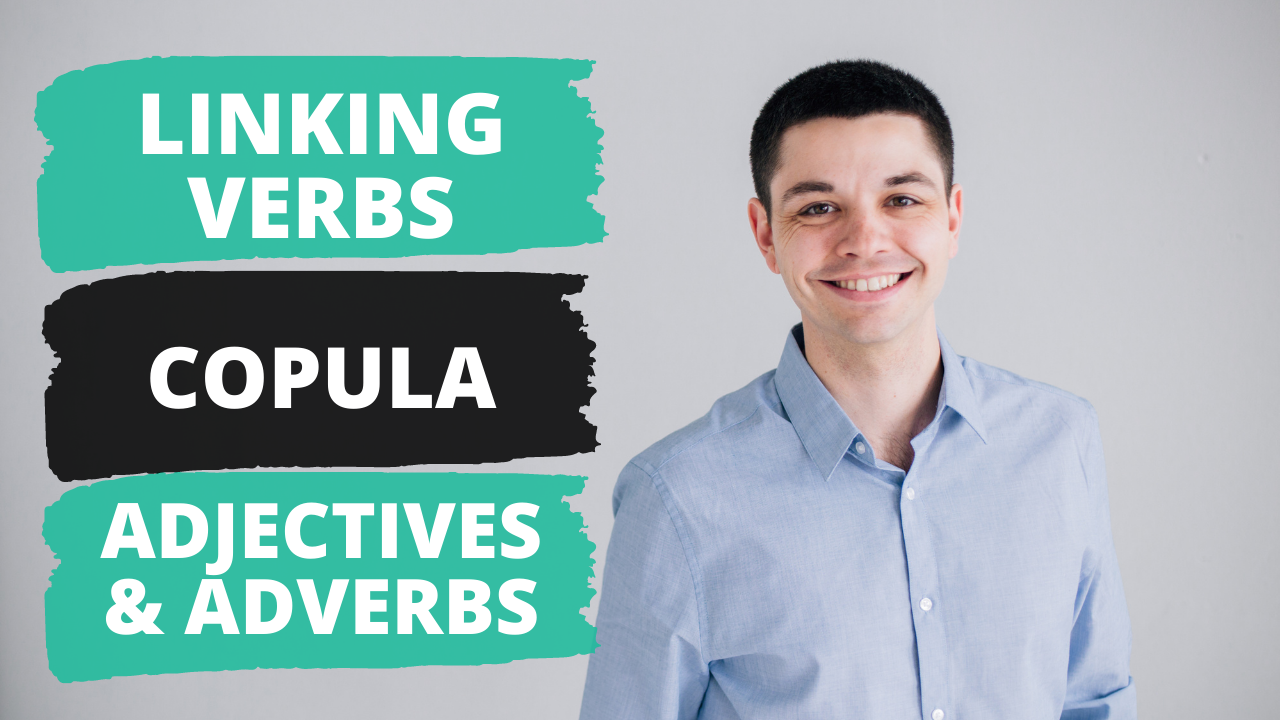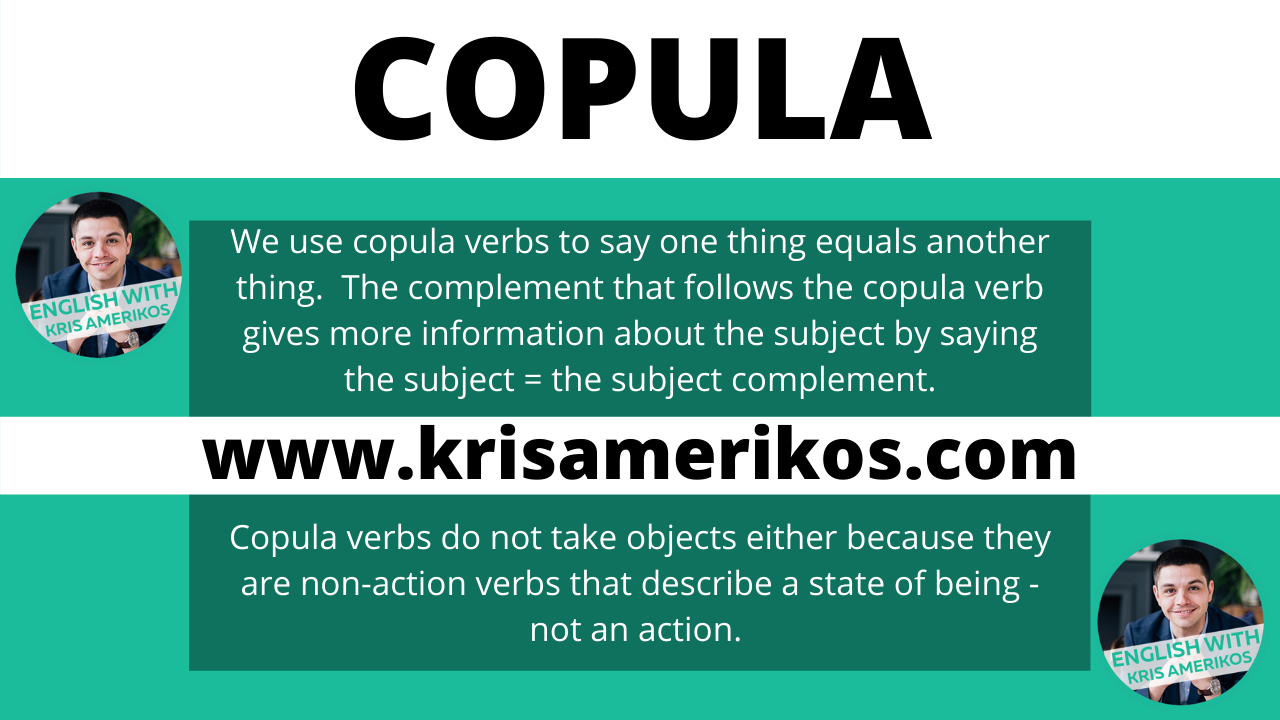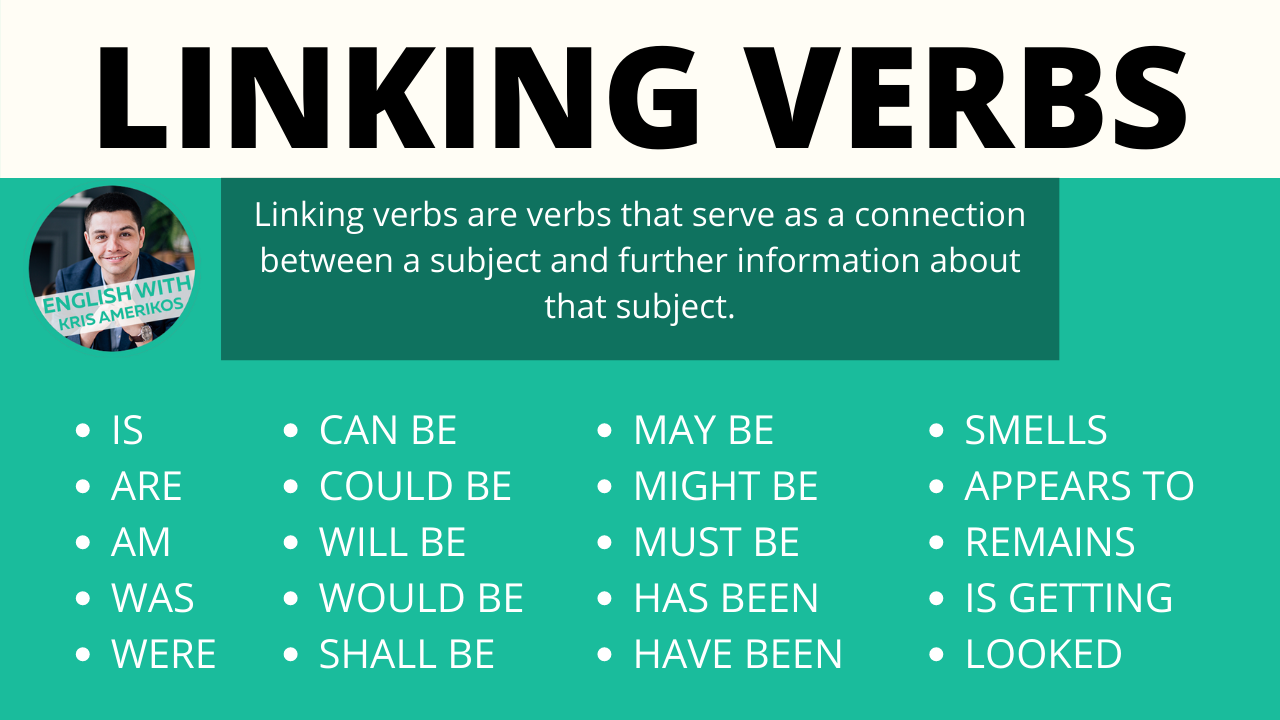Copular Verbs - Learn This Adjective

Most of the time, the subject of a sentence ‘does’ the verb. Either, the subject of the sentence ‘does’ something to an object (he drinks water) or the verb doesn’t take an object at all (she wakes up).
But there are verbs that the subject doesn’t ‘do.’ These verbs link the noun with the complement of the sentence - they are called copula verbs.
What Is Copula Verb
Copula verbs (also known as linking verbs) are verbs that link an adjective or a noun to the subject of the sentence. The subject of the sentence does not physically perform the action and there is no object of the verb.
Copula verbs allow us to give more information about the subject of the sentence.
An adjective can come before a noun:
The intelligent girl.
Or after the noun and linked with a copula verb:
The girl is intelligent.
What is a Copular Verb in English Grammar?
In English grammar, copular verbs are used to say the subject equals the adjective or the noun. The copular verb links the subject with the subject complement.

Copula Grammar
We use copula verbs to say one thing equals another thing. The complement that follows the copula verb gives more information about the subject by saying the subject = the subject complement.
A copula verb can link a subject to a noun:
“I am a teacher.”
Or it can link a subject to an adjective:
“He is happy.”
The above sentences mean:
I = a teacher.
He = happy.
It’s important to remember that a copula verb allows us to give more information about the subject. The subject of a sentence is always a noun. If we are describing the noun, we must use an adjective after a copula verb.
We CANNOT use an adverb after a copula verb:
“He is happily.”
It’s important to note that adjectives come after copula verbs - not adverbs. If we use an adverb in its place, then the entire meaning of the sentence changes.
Compare:
“They are beautiful.” (are = copula verb)
“They danced beautifully.” (dance = NOT copula verb)
In the first sentence, the adjective describes the subject.
“They = beautiful.”
In the second sentence, the adverb describes the action.
“Danced = beautifully.”
Copula verbs do not take objects either because they are non-action verbs that describe a state of being - not an action.
What is English Everyday
English Everyday is an English course with 24/7 live speaking lessons for English learners who want unlimited speaking practice with native speakers, professional teachers, and students from around the world.
You have live speaking lessons where you can join an unlimited amount of lessons every day. There's a lesson almost every hour and you can join all of them and also, you can review all record lessons. English Everyday contains a lot of conversation practice for each level of English (A2, B1-B2, C1), and also you have a calendar of scheduled lessons so you can see when lessons are and at what time you can join and start speaking.
In English Everyday program, you have 24/7 support and also you have student chat where you can speak with other students from all around the world. You can look at our feedback page so that you can know from which countries our students are. Before you join our program, we strongly recommend you sign up for our free seminar with Kris Amerikos, where you can learn:
- What goals you need to have to get better results
- How to become fluent in English very quickly
- What you need to do to have perfect pronunciation
- The 3 biggest mistakes you need to avoid
- Which free resources will help you learn English
- The best resource to use to improve your speaking
Copular Verbs List

Act
Appear
Be
Become
Call in
Come
Come out
Constitute
Die
Eat
Emerge
End up
Equal
Get (to become)
Go
Grow (to become)
Fall
Feel
Freeze
Keep
Lean
Look
Play
Prove
Remain
Run
Seem
Shine
Smell
Sound
Stay
Take
Taste
Turn (to become)
Turn up
Waxed
Copula Verb Examples
The most common copula verb is the verb ‘to be.’ It is used the most often to link a subject with an adjective or noun. Other common copula verbs are ‘sounds,’ ‘tastes,’ ‘seems,’ ‘appears,’ and ‘feels.’
Copular Sentences
She acted happy.
Sarah and John appear upset today.
We are doctors.
The weather became sunny.
Harry called in sick.
It came out delicious.
Nouns constitute one of the main word classes in the English language.
He died young.
I eat healthy.
They emerged shocked from the accident.
It ended up great!
You got upset.
He and his friends go crazy every weekend.
He grew weary of me.
John fell ill.
We feel wonderful!
The water froze solid.
He leans more libreal.
My dad looks annoyed.
Chameleons play dead when they feel threatened.
It proved difficult.
I remained quiet.
Patriotism runs deep in my family.
They seem pleased.
His smile shines bright.
It smells delicious.
It sounds great.
John stayed alone.
She took ill.
The food tastes bad.
She turned angry.
Sarah turned up missing.
We waxed nostalgic.
Copular Verbs With Passive Voice
Copular verbs and intransitive verbs do not take a direct object , which means that they do not have a passive form.
We form passive sentences when the object of the verb appears in the subject position.
For example:
“I drink water.”
“Water is drunk (by me).”
The structure indicates that we need an object of the verb to form a passive sentence. Intransitive verbs and copular verbs don’t have an object so they cannot be used in passive sentences.









































